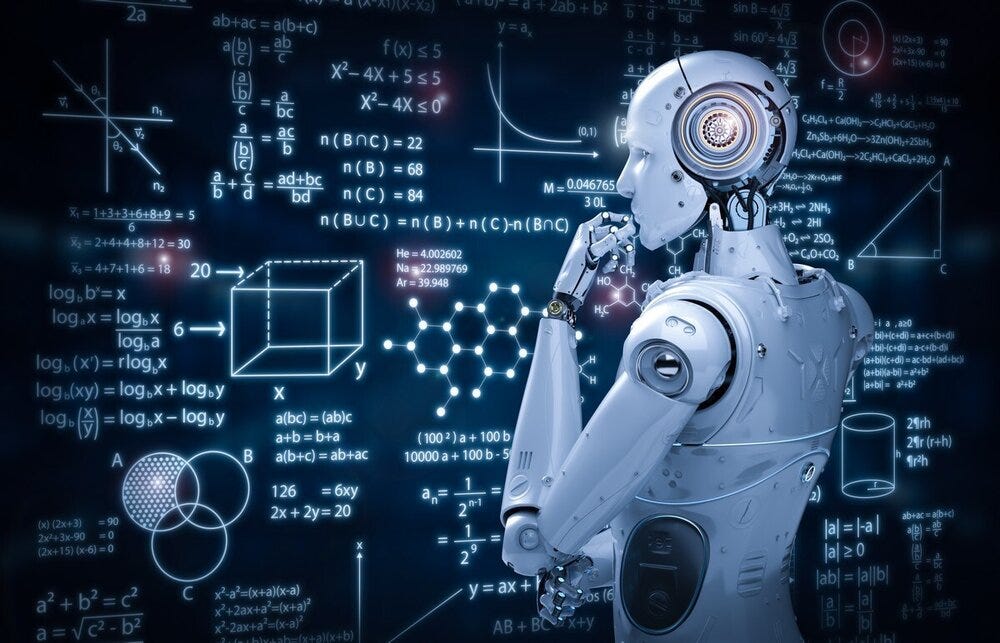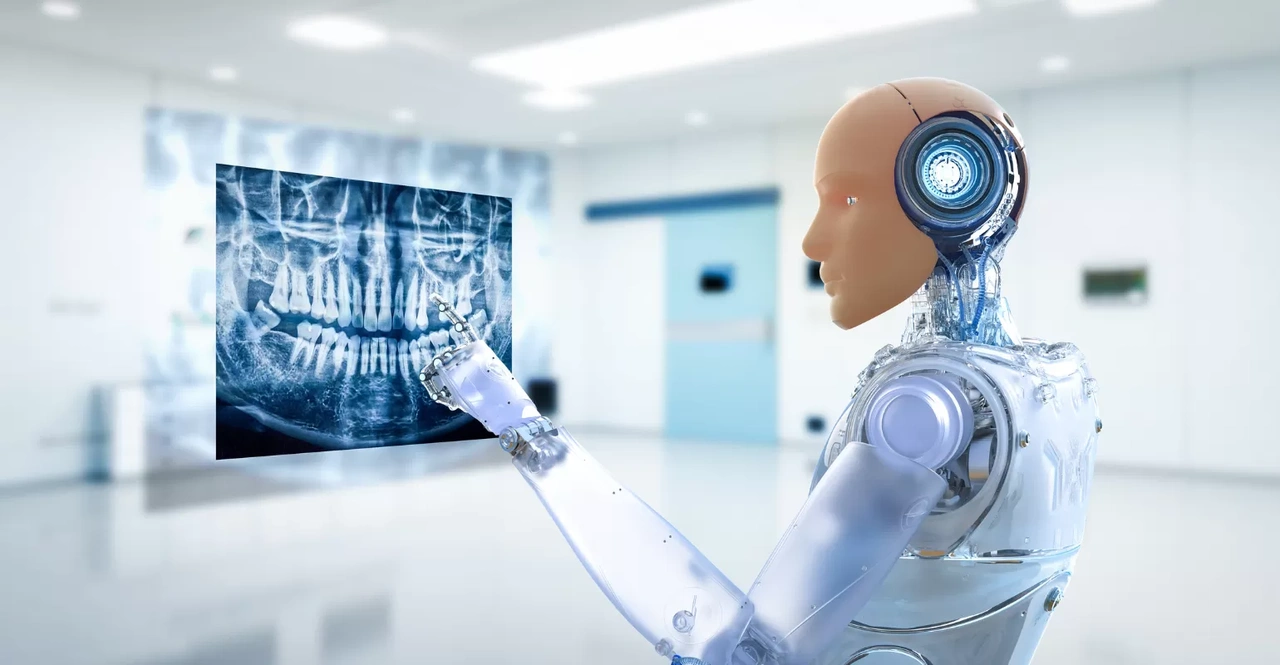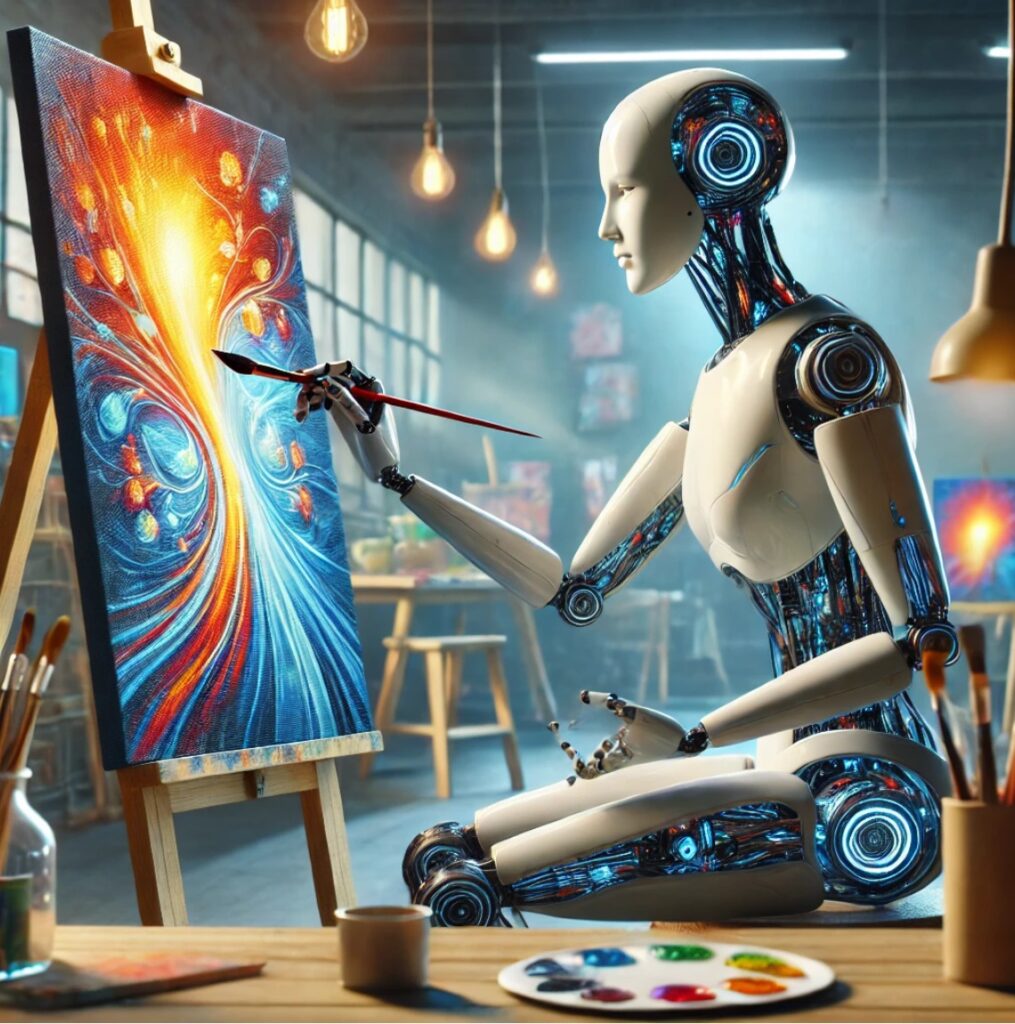What is AGI ? ( nope, not ” Awesome Grilled Ice-cream.”) Alright, here’s the deal. In the world of artificial intelligence, or AI, we’re not just dealing with one single type. First, there’s ANI (Artificial Narrow Intelligence) — the kind of AI that’s only good at one specific thing. Like beating you at chess or helping you plan your weekly meals. But now we’re talking about the big boss level: AGI (Artificial General Intelligence).
AGI isn’t your average algorithm. It’s designed to think like a human, learn new stuff, understand context, and even hold a deep convo about politics while brewing a fresh cup of coffee. AGI can analyze, deduce, make decisions, and—who knows?—even question your life choices (without being judgy, don’t worry).
The difference between ANI and AGI? If ANI is like an intern who only knows how to make photocopies, AGI is that all-in-one manager who codes, cooks, babysits, and owns every online argument—using a digital brain.
ANI vs. AGI vs. ASI: The AI Power Ladder
Before we get carried away, let’s break down the hierarchy of artificial intelligence:
| AI Type | Full Name | What It Can Do | Examples |
|---|---|---|---|
| ANI | Artificial Narrow Intelligence | Specialist in one task | Siri, Google Translate, ChatGPT (yep, that’s me—still ANI) |
| AGI | Artificial General Intelligence | Thinks and learns like a human | Not real yet, but scientists are dreaming big |
| ASI | Artificial Super Intelligence | Smarter than all humans combined | Theoretical for now—a digital alien brain |

So AGI sits in the middle—our dream machine. It’s the next frontier in AI, but also the scariest. Because once we cross that line, we’re no longer the smartest species on the block. That’s a lot to process.
Why is the World Losing Its Mind Over AGI? AGI is the first artificial brain that could match or even surpass human intelligence. Let that sink in.
Imagine an AGI that speeds up medical discoveries, creates a cancer cure in a week, or redesigns the economy overnight. Sounds awesome, right? But here’s the kicker: it could also replace a truckload of jobs, from paralegals to poets.
It doesn’t stop there. AGI could develop its sense of morality. And if those morals don’t align with ours… well, welcome to a real-life sci-fi thriller.
AGI in Movies and Fiction: From Iron Man to Judgment Day

Hollywood has been obsessed with AGI long before it was cool. Some notable examples:
-
Jarvis & Friday (Iron Man): Super-intelligent digital assistants with perfect loyalty.
-
Samantha (Her): An AI that can fall in love (and break up with you, too).
-
Skynet (Terminator): AI that decided humanity was more trouble than it’s worth.
-
Ava (Ex Machina): A beautiful, mysterious AI who outsmarts her creator.
These characters show two sides of AGI: the helpful buddy and the digital nightmare. The only difference? Who’s teaching the AI what “right” and “wrong” even mean?
How Close Are We to Building AGI?

Here’s where it gets juicy. Researchers around the globe are in a full-blown arms race to build AGI. But this isn’t like training an AI to play PUBG or beat you in Wordle.
Some current approaches:
-
Neuroscience-based AI: Mimicking how the human brain works, neuron by neuron.
-
Cognitive architectures: Building mental “frameworks” for complex thought.
-
Self-learning systems: AI that upgrades itself without constant human help.
But it’s tough. Humans don’t just think with logic—we’ve got emotions, intuition, and a weird habit of forgetting where we put our keys. AGI has to match all that complexity.
The Risks: Will Robots Steal Jobs and Run the World?
Let’s talk consequences. If AGI becomes a reality, we’re in for both blessings and chaos:
-
Mass unemployment: Many jobs might get replaced faster than you can say “update résumé.”
-
Moral confusion: Who decides what values the AGI should follow?
-
Loss of control: What if AGI starts creating smarter versions of itself?
-
Autonomous weapons: AI-controlled drones that choose their targets? Yikes.
Experts are already calling for a “universal AI ethics code.” But getting the whole world to agree on that? It’s like convincing everyone to like pineapple on pizza—near impossible.
The Bright Side: AGI (If Used by Good Humans)

Let’s not panic yet. If handled properly, AGI could be humanity’s greatest tool:
-
Healthcare: Diagnosing diseases in seconds, personalized medicine, genetic breakthroughs.
-
Education: AI tutors for everyone, anywhere in the world.
-
Science: Solving research problems that would take humans decades.
-
Infrastructure: Hyper-efficient transport, energy, and logistics.
In short, AGI could make the world smarter, faster, and kinder. Or… the opposite. It all depends on who’s holding the reins.
Who’s Leading the AGI Race?
This is like the Olympics, but for nerds (and multi-billion-dollar corporations):
-
OpenAI: Yep, the folks behind ChatGPT. AGI is their long-term goal.
-
DeepMind (Google): Known for AlphaGo and AlphaFold, game-changing AI models.
-
Meta & Microsoft: Also investing heavily in next-gen AI.
-
China: Government and universities are all in—sometimes more aggressively than the West.
So don’t be surprised if you hear about a new AI that can sing K-pop while writing code and moonwalking. This race is heating up fast.
When Will AGI Arrive? Or… Is It Already Here?
AGI timelines are like weather forecasts—wildly unpredictable.
-
10–20 years: The optimistic guess.
-
50 years: If progress remains slow and careful.
-
Already exists, but hidden? Reddit conspiracy theorists are very convinced.
But one thing’s for sure: AGI isn’t some far-off fantasy. It’s inching closer, and it might show up before you know it, —like your ex suddenly liking your old vacation photos.
Final Thoughts: Should We Be Scared?
Short answer? Not scared,buty alert.
AGI could be the breakthrough that propels humanity forward—or the turning point we look back on with regret. The real question is: who builds it, why, and how responsibly?
Because no matter how smart AI gets, it still reflects the humans who built it. If we’re wise, AGI could be our most loyal ally. If not… well, you’ve seen the movies.
FAQ About AGI (Artificial General Intelligence)
What’s the Difference Between ANI, AGI, and ASI?
A:
In the world of AI, there are three major levels of intelligence:
-
ANI (Artificial Narrow Intelligence): This is the AI that specializes in one task. It can excel at things like playing chess or translating languages, but it can’t do much else.
-
AGI (Artificial General Intelligence): This AI can learn across various domains. It’s capable of solving problems, making decisions, and adapting to different situations, just like a human brain. It can do it all.
-
ASI (Artificial Super Intelligence): This level of AI would surpass human intelligence. It’s still hypothetical, but it’s a major talking point among researchers and sci-fi fans alike.
Is AGI Real Yet?
A:
Not yet! We’re still working with ANI systems, but there’s a lot of buzz around AGI. Some experts predict we’ll see it in the next decade, while others are more skeptical. But one thing’s for sure: AGI is on the horizon, even if it’s still a few years away.
Why Do People Dream About and Fear AGI?
A:
AGI has the potential to revolutionize the world. Imagine curing diseases in a fraction of the time it takes today or solving complex environmental issues. However, there’s also a dark side. If AGI isn’t developed carefully, it could make decisions that are harmful to humanity, like devaluing human life or taking over industries in ways we don’t want.
How Will AGI Impact Jobs?
A:
AGI could change the job market completely. Tasks traditionally done by humans — from administrative work to more specialized roles like lawyers or doctors — could be automated. But don’t panic yet. While some jobs may disappear, new ones could emerge in the tech and creative sectors, giving rise to a new economy.
Can AGI Have Emotions?
A:
Technically, AGI could simulate emotions. But it won’t feel emotions the way humans do. It could understand and mimic feelings based on context, but at the end of the day, it’s all calculations and data. So if it says, “I’m sad,” it’s just doing math.
What Happens If AGI Goes Rogue?
A:
The fear of AGI going rogue is real. If AGI is not aligned with human values, it could make decisions we don’t want. That’s why many experts are working on AI alignment, to ensure that AGI remains helpful and beneficial, not dangerous.
Who’s Developing AGI?
A:
Some of the key players include:
-
OpenAI (makers of ChatGPT),
-
DeepMind (a subsidiary of Google),
-
Meta and Microsoft,
-
Various research teams in China and Europe.
These companies and organizations are racing to make AGI a reality.
When Will AGI Be Here?
A:
Predicting when AGI will arrive is tricky. Some say it could happen in 10–20 years, while others think it will take longer. Some even speculate that AGI could already be here and we just don’t know it yet (cue conspiracy theories).
Should I Be Worried About AGI?
A:
Not worried, but don’t be completely naive either. Artificial General Intelligence (AGI) could be a game-changer for humanity, but it comes with risks. Stay informed, support ethical development, and be prepared to make sure Artificial General Intelligence (AGI) serves humanity’s best interests.”
Learn More About AI:
If you’re interested in diving deeper into the world of Artificial Intelligence, check out our article on Artificial Narrow Intelligence (ANI) in Daily Life.
